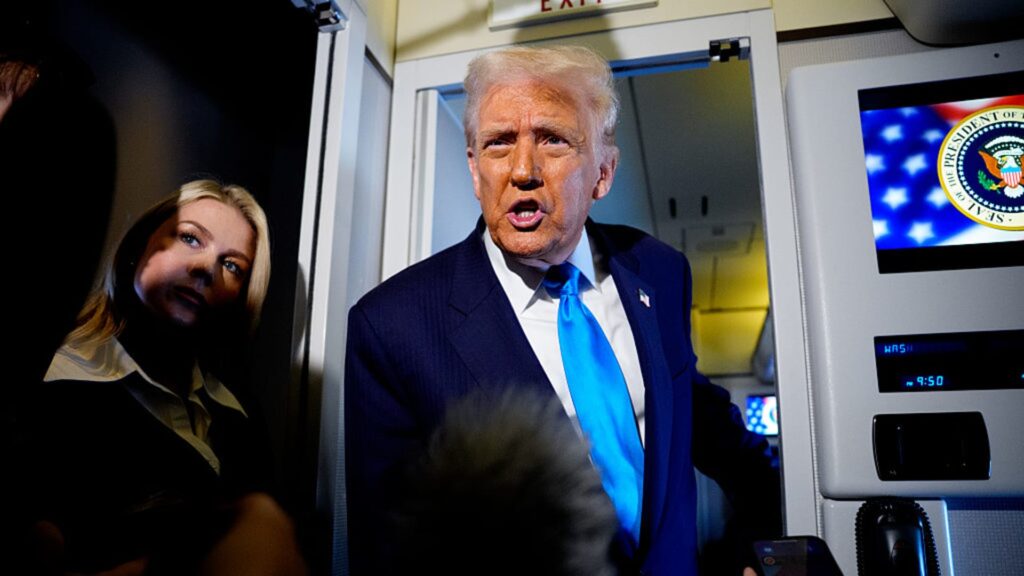U.S. President Donald Trump speaks to Japanese journalists aboard Air Force One en route to South Korea on October 29, 2025.
Andrew Harnik | Getty Images News | Getty Images
US President Donald Trump will discuss Nvidia’s advanced AI chips with Chinese President Xi Jinping in a widely anticipated meeting on Thursday, he told a media scrum on Wednesday.
While fielding questions about his high-stakes meeting with Xi, Trump hinted that they might discuss Nvidia’s Blackwell AI processors.
“We talk about Blackwell. It’s a top-notch chip,” he said. Nvidia’s “super-duper chip” appears to be referring to the company’s most advanced AI chip, the GB200 Grace Blackwell Superchip.
More broadly, Nvidia’s Blackwell architecture represents the latest generation of AI chips, or “graphics processing units,” used to train and run large-scale language models.
President Trump went on to praise Nvidia’s Blackwell chip, claiming it is about a decade ahead of any other chip.
“That’s our country. We’re about 10 years ahead of other countries in chips, highly sophisticated chips. I think we’re probably talking about that with President Xi.”
The comments come as Nvidia faces an uncertain future in China, once a lucrative market for AI darlings.
Nvidia had long been unable to sell cutting-edge AI products to China due to export restrictions, but in July the U.S. government lifted restrictions on the chipmaker’s less advanced H20 chips destined for China.
President Trump has since indicated that he may allow downgraded versions of Nvidia’s Blackwell chips to be imported into China.
But in a surprising move, the Chinese government recently intervened to block imports of NVIDIA chips by its own company due to national security concerns about the company’s technology. As a result, Nvidia CEO Jensen Huang said earlier this month that the company is now “100% out of China” and has no market share there.
However, many analysts believe that the Chinese ban is likely to be temporary and that Beijing may be using Nvidia’s access to its home market as leverage in trade negotiations with the Trump administration.
Despite President Trump’s remarks about Nvidia’s “top-of-the-line chips,” it seems more likely that a less advanced version will be on the table.
In August, Reuters reported that Nvidia was developing a new chip called B30A for China. This chip will be more powerful than the H20 and will be built on the Blackwell architecture.
These chips could tentatively help Nvidia fend off increasing competition from domestic companies such as Huawei as the Chinese government accelerates efforts to develop a self-sufficient AI environment.
However, semiconductor experts said the resumption of H20 exports and the additional route to B30A would undermine the US government’s strategy to support China’s AI ecosystem more broadly and curb China’s access to cutting-edge computing, which began increasing in 2022.
A report released earlier this week by the US think tank Institute for Progress argued that allowing the B30A to be exported to China would significantly reduce the US’ current AI computing advantage over China.
Mr. Hwang, who has long campaigned against U.S. chip regulations, is reported to be traveling to South Korea at the same time as Mr. Trump this week. Nvidia’s CEO plans to make an announcement with local partners, which Huang said he hopes will be “something that will be really pleasing to the Korean people and really pleasing to President Trump.”


